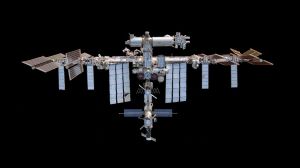Mumbai limps back to normalcy
Two days after the last of the terrorists was gunned down, offices, courts, schools, and colleges have opened, and Mumbaikars have resumed their daily routine.

Two days after the last of the terrorists was gunned down by commandos, the country8217;s commercial capital limps back to normal with the routine flurry of activities seen in almost all parts of the city.
The first signal of normalcy came when a couple of hours after the operation at the Taj was over on Saturday, Jehangir Art Gallery, a stone8217;s throw away from the landmark hotel, was thrown open for art aficionados.
On Sunday, Cafe Leopold, where the terrorists started their bloody campaign, opened its doors to customers.
Government and corporate offices, courts, schools, and colleges have also opened, and lakhs of Mumbaikars have resumed their daily routine.
Local trains were running full this morning, indicating that the city8217;s denizens, though traumatised, have started a new day.
There was also a flurry of political activities in the state following the resignation of the Union Home Minister Shivraj Patil on Sunday.
More cacophony followed in the political circles, after Deputy Chief Minister R R Patil stepped down early on Monday after demands from several sections for the resignation of Chief Minister Vilasrao Deshmukh and his deputy in the aftermath of the carnage.
Meanwhile, Leopold Cafe, in its gesture of defiance of the terrorists8217; coercion and in support of the city8217;s never-say-die attitude, was shut temporarily for 8216;security reasons8217; after a huge crowd flocked to the place.
8220;The cafe opened in the afternoon to show the terrorists that we have won and not them. But the crowd had become unmanageable as everyone wanted to come in and have a look,8221; Farzad Jehani, the owner of the cafe, just behind the Taj Mahal hotel said.
Earlier, raising a toast to the re-opening of his favourite cafe, Salim along with his young son, the first customer to enter the 8216;Leo8217;, as the cafe is fondly called, said, 8220;Come to Leo with hugs and smiles. Nothing to fear as the show must go on.8221;
Trains witnessed usual office crowd with school as well as college students gearing up for another day of studies even as offices, banks and other institutions reopened on Monday.
Shops in south Mumbai, which were closed after the attacks on Wednesday night, resumed normal business on Monday.
Roads in Colaba saw heavy traffic and were choc-a-bloc with people stepping out of their homes to have a glimpse of the iconic Taj, Trident-Oberoi and the Nariman house where the terror drama unfolded.
The Marine Drive, which is usually full of joggers and tourists, came back to life.
Authorities finished removing bodies from the bullet- and grenade-scarred Taj Mahal hotel Monday, the final site of the Mumbai siege to be cleared, as schools and businesses reopened and commuters returned to work.
Security forces had been scouring the 565-room hotel for booby traps and bodies, and declared the landmark building cleared two days after they killed the last three militants holed up inside following a three-day rampage in India8217;s financial centre that left at least 172 dead.
8220;We were apprehensive about more bodies being found. But this is not likely 8211; all rooms in the Taj have been opened and checked,8221; said Maharashtra state government spokesman Bhushan Gagrani.
The army had already cleared other sites, including the five-star Oberoi hotel and the Mumbai headquarters of an ultra-Orthodox Jewish group.
On Monday morning, parents dropped their children off at school and many shopkeepers opened their doors for the first time since the attacks began.
8220;I think this is the first Monday I am glad to be coming to work,8221; said Donica Trivedi, 23, an employee of a public relations agency.
Others were uneasy.
8220;I feel totally insecure,8221; said Rajendra Shah, 55, an insurance agent. 8220;I8217;m very scared, but what can you do? I must go to work.8221;
As more details of the response to the attack emerged, a picture formed of woefully unprepared security forces. 8220;These guys could do it next week again in Mumbai and our responses would be exactly the same,8221; said Ajai Sahni, head of the New Delhi-based Institute for Conflict Management and who has close ties to India8217;s police and intelligence.
8220;The way Mumbai police handled the situation, they were not combat ready,8221; said Jimmy Katrak, a security consultant. 8220;You don8217;t need the Indian army to neutralize eight to nine people.8221;
With no SWAT team in the city of 18 million, authorities called in the only unit in the country trained to deal with such crises.
But the National Security Guards, which largely devotes its resources to protecting top officials, is based outside of New Delhi and it took the commandos nearly 10 hours to reach the scene.
That gave the gunmen time to consolidate control over two luxury hotels and the Jewish center, Sahni said.
- 01
- 02
- 03
- 04
- 05































